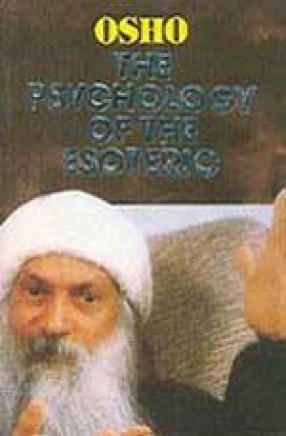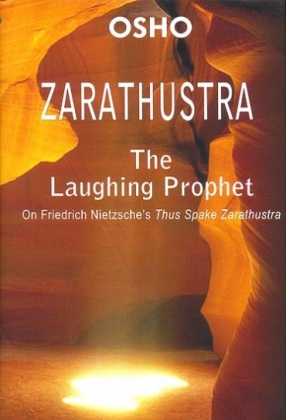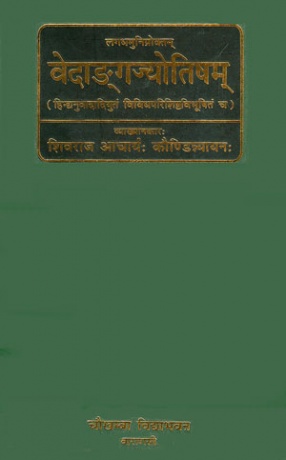Osho tells us Unconscious evolution ends with man and conscious evolution begins then. But conscious evolution doesn’t necessarily begin in any particular man. It begins only if you choose it to begin. Life means movement. It’s impossible to remain where we are. Either we evolve to a higher level of consciousness or we regress. The choice is ours. We can’t choose. Even not choosing is a subtle choice. Most people seek oblivion and return to unconsciousness. They seek it through alcohol and drugs, through work, through sex, through sensory stimulation. Only a few choose to begin the journey towards lighter consciousness. It is to these few people that Osho addresses the discourses contained in The Psychology of the Esoteric.There are two types of evolution: collective evolution and individual, conscious evolution. Evolution implies unconscious, collective progress, so it would be better to use the world revolution in talking about man. With man, revolution becomes possible. Revolution, as I am using the word here, means a conscious individual effort toward evolution. It is bringing individual responsibility to a peak. Only you are responsible for your own evolution.
The Psychology of the Esoteric
by Osho .
$18.90
$21.00
In stock
Free & Quick Delivery Worldwide
All orders amounting to US$ 50 or more qualify for Free Delivery Worldwide. For orders less than US$ 50, we offer Standard Delivery at $14 per book.
ABOUT THE AUTHOR Osho .
Osho was born in Kuchwada, Madhya Pradesh, on 11 December 1931. Rebellious and independent from childhood, he insisted on experiencing the truth for himself rather than acquiring knowledge and beliefs given by others. He attained 'enlightenment' at 21 and went on to complete his academic studies. He spent several years teaching philosophy at the University of Jabalpur. Meanwhile, he travelled throughout India delivering talks and meeting people from all walks of life. By the 1960s, Osho had begun to develop his unique dynamic meditation techniques. He felt that modern man is so burdened with the archaic traditions of the past as well as the anxieties of modern-day living that he must go through a deep cleansing process before he can hope to discover the thought-less, relaxed state of meditation. In the early 1970s, the West first began to hear of Osho. By 1974, a commune had been established around him in Pune, and the trickle of visitors from the West soon became a flood. Osho spoke of every aspect of life and on the development of human consciousness. Based on his own existential experience rather than on intellectual understanding, he distilled the essence of what is significant to the spiritual quest of contemporary man. Osho left his body on 19 January 1990. His commune in India continues to attract thousands of international visitors who come to participate in its meditation, therapy and creative programmes or to simply experience being in a 'Buddhafield'. Osho's talks have been published in more than 600 volumes and translated into over thirty languages.
reviews
0 in total
Review by Anonymous
Be the first to review “The Psychology of the Esoteric” Cancel reply
You must be logged in to post a review.
Bibliographic information
Title
The Psychology of the Esoteric
Author
Edition
1st ed.
Publisher
Diamond Pocket Books, 2004
ISBN
8128809253
Length
186p.
Subjects
more by Osho . see more
similar bookssee more
100 Great Inspiring Stories
$11.70
$13.00
Atlas of Microscopy of Medicinal Plants, Culinary Herbs and Spices
Some twenty years ago our ...
$90.00
$100.00








There are no reviews yet.